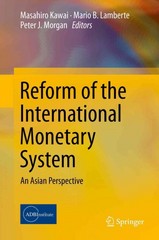These are the questions:
Trade Implications of Domestic Policies Policies aimed at the domestic market have been known to have direct implications for trade flows. Health, environmental, and safety standards are applied by governments to both domestic and foreign products. Surely, domestic consumers of foreign products should be protected from impurities and sources of disease, but some economists claims that restrictions are excessive in some instances and contain an element of protectionism. An example is the controversial European restriction on the import of U.S. genetically engineered products. This restriction has been ruled as illegal by the World Trade Organization but it still remains in existence until today. Subsidies to domestic firms also have direct implications for trade. Although a particular subsidy may not be intended to affect trade, a subsidy may stimulate exports. For example, U.S. lumber producers have long felt that the Canadian provincial governments sell timber rights to Canadian firms at subsidized or unfairly low price, putting the U.S. firms at a competitive advantage and countervailing duties have been imposed. In the case of an import-competing firm, government subsidies can lead to an expansion of output and employment and a reduction in imports. A low-interest U.S. government loans to the Chrysler Corporation in the Carter administration can also be thought of as a government subsidy that had a clear trade implications. Based on the above article answer the following questions: 1. Define the new protectionism. Identify the non-tariff barriers stated in the article. (3 marks) 2 Other than those mentioned in the article, suggest other non-tariff barriers that can be used to limit the volume of trade between countries. (2 marks) 3. Explain how "the European restriction on the import of U.S. genetically engineered products " be considered as "excessive in some instances and contain an element of protectionism " as claimed by some economists. (5 marks) 4. Describe how the U.S. government subsidies to its domestic firms - U.S. lumber producers and Chrysler Corporation - can have direct implications for their trade







